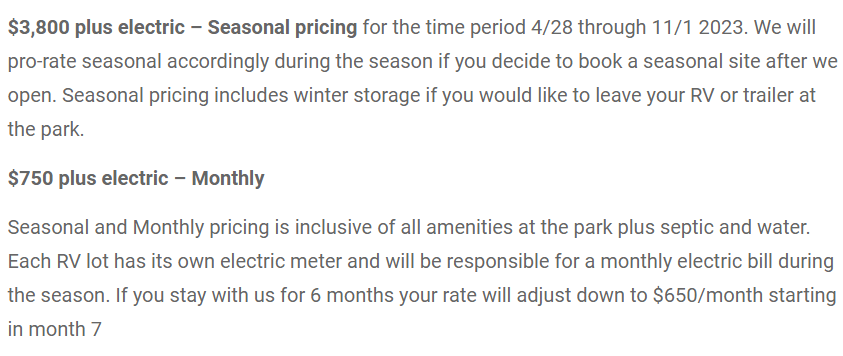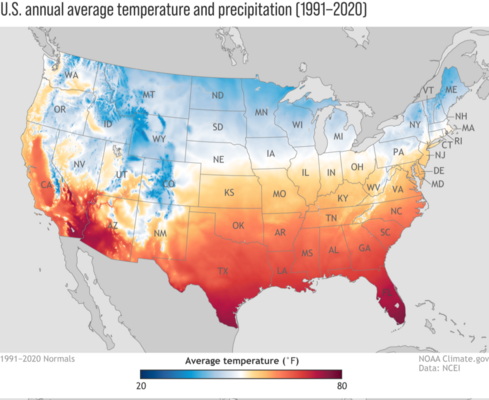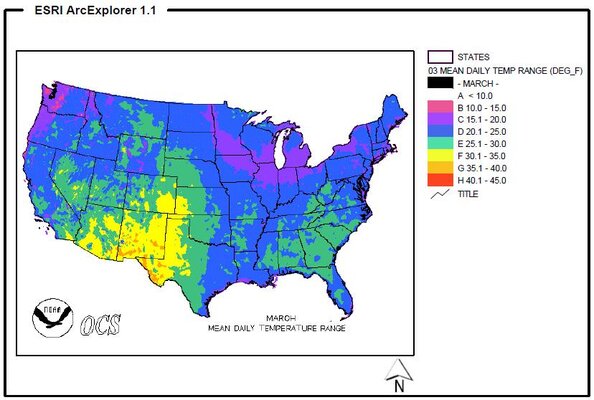The problem with getting info from a basic RV forum is you are getting information from people who only use their RVs as recreational vehicles and not residential vehicles. Many people who use their RVs as residential vehicles DO NOT post on forums like this because they don't relate to RVers and they don't think they are doing anything differently than renting or moteling. Like houses, you may find the need to make modifications for extreme weather situations. If you want it bad enough, you will find a way to make it work.
This is my actual experience.
For cold weather places, I would add a 1" rigid foam layer of house insulation (either Owens-Corning "pink" or Dow "blue") over the interior walls because manufactured RVs are overpriced junk on wheels. Build interior "storm windows" to cover ALL of the POS aluminum framed windows (aluminum framed dual pane windows on an RV are a joke). Home Energy Conservation has info on how to make a house (or an RV) better insulated.
I live in a self converted 40 ft long bus (former school bus - don't do that). I live in it fulltime in NM where temps run from single digits in the winter to triple digits in the summer. I have a 200gal propane tank that sits next to my bus. It gets filled about 2X per year. I heat the bus with a small electric "Milk house" style utility heater (overnight and in the rear/bedroom area of the bus). My main heat source is a vent-free residential LP fireplace insert with a blower. My rent is currently $350/mo. My electric runs about $50 in the winter and $100 in the summer (the two AC's turn on in the spring and run 24/7 until fall). I live in a small park with about 24 other "misguided" people like me. The town I live in is full of rental houses that are uninsulated. My "home" is warmer in winter and cooler in summer than many of my former co-workers. I have made modifications to ensure my plumbing doesn't freeze, even when I lived in South Georgia.
Previously, I have lived in a vintage Class C in the TN mountains thru snowy winters.
I have also lived in mobile home parks.
Heat tape & insulate plumbing. Build a winter water hose by using a potable water garden hose (not the POS white vinyl RV hose), tape a single line (not spiral wound) heat tape for residential plumbing. Leave enough heat tape hanging out on each end of the hose to loop around the RV side of the city water connection (insulate connection) and wrap around the park water supply (Insulate by making a "bag" from reflectix and securing it to the park water supply so winter storms don't blow it away). Wrap the hose & heat tape with foam pipe insulation (use at least the next size up from the hose diameter), then wrap the pipe insulation with Gorilla tape, making sure to cover all of the pipe insulation. This will be good for several years. Plug it in and hope the power doesn't go out. You can buy an expensive version of a winter hose in stores. This past winter, 6 out of 6 ended up in the dumpsters after a week of temps that were hitting highs below 15F. My 7 yo hose is still in use.
This is my actual experience.
For cold weather places, I would add a 1" rigid foam layer of house insulation (either Owens-Corning "pink" or Dow "blue") over the interior walls because manufactured RVs are overpriced junk on wheels. Build interior "storm windows" to cover ALL of the POS aluminum framed windows (aluminum framed dual pane windows on an RV are a joke). Home Energy Conservation has info on how to make a house (or an RV) better insulated.
I live in a self converted 40 ft long bus (former school bus - don't do that). I live in it fulltime in NM where temps run from single digits in the winter to triple digits in the summer. I have a 200gal propane tank that sits next to my bus. It gets filled about 2X per year. I heat the bus with a small electric "Milk house" style utility heater (overnight and in the rear/bedroom area of the bus). My main heat source is a vent-free residential LP fireplace insert with a blower. My rent is currently $350/mo. My electric runs about $50 in the winter and $100 in the summer (the two AC's turn on in the spring and run 24/7 until fall). I live in a small park with about 24 other "misguided" people like me. The town I live in is full of rental houses that are uninsulated. My "home" is warmer in winter and cooler in summer than many of my former co-workers. I have made modifications to ensure my plumbing doesn't freeze, even when I lived in South Georgia.
Previously, I have lived in a vintage Class C in the TN mountains thru snowy winters.
I have also lived in mobile home parks.
Heat tape & insulate plumbing. Build a winter water hose by using a potable water garden hose (not the POS white vinyl RV hose), tape a single line (not spiral wound) heat tape for residential plumbing. Leave enough heat tape hanging out on each end of the hose to loop around the RV side of the city water connection (insulate connection) and wrap around the park water supply (Insulate by making a "bag" from reflectix and securing it to the park water supply so winter storms don't blow it away). Wrap the hose & heat tape with foam pipe insulation (use at least the next size up from the hose diameter), then wrap the pipe insulation with Gorilla tape, making sure to cover all of the pipe insulation. This will be good for several years. Plug it in and hope the power doesn't go out. You can buy an expensive version of a winter hose in stores. This past winter, 6 out of 6 ended up in the dumpsters after a week of temps that were hitting highs below 15F. My 7 yo hose is still in use.



